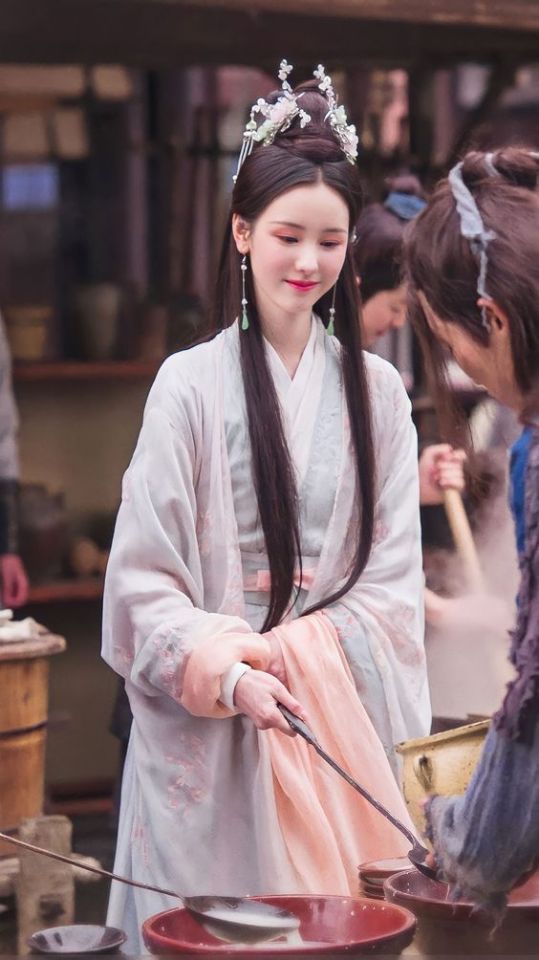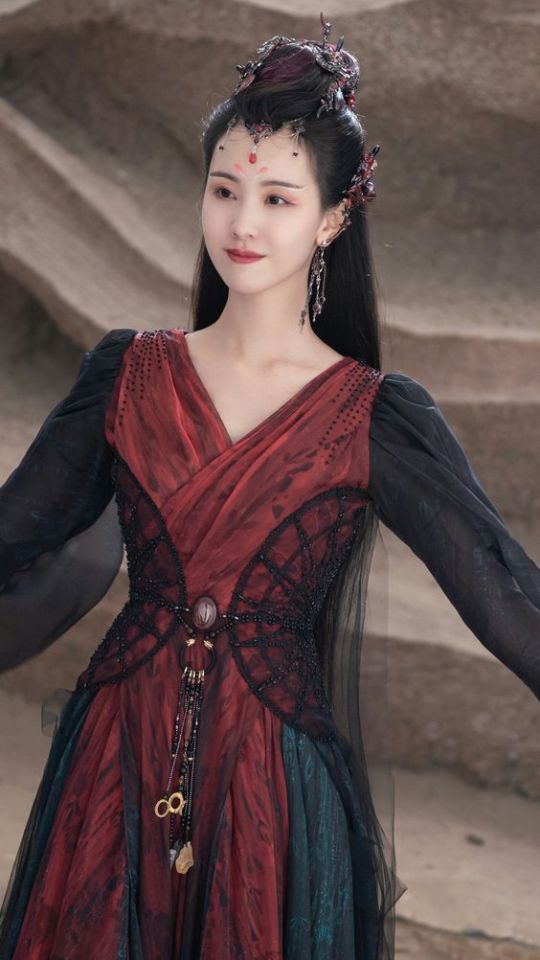I Made These As A Way To Compile All The Geographical Vocabulary That I Thought Was Useful And Interesting





I made these as a way to compile all the geographical vocabulary that I thought was useful and interesting for writers. Some descriptors share categories, and some are simplified, but for the most part everything is in its proper place. Not all the words are as useable as others, and some might take tricky wording to pull off, but I hope these prove useful to all you writers out there!
(save the images to zoom in on the pics)
More Posts from Freakinfiction and Others

This might be my fav art of them so far I think
Print <3 | kofi | instagram
Writing Notes: Types of Plot Twists

7 Types of Plot Twists
Anagnorisis
Means "discovery."
This type of plot twist is when the protagonist suddenly recognizes something about his or herself or another character.
Deus ex machina
Latin for "God out of the machine,"
Deus ex machina means the introduction of an unexpected event or person that solves the problem.
Because it's artificial, it's rarely used in modern fiction.
False protagonist
The main character is not the true main character.
He or she is killed off early or unexpectedly.
Peripeteia
Means a reversal of fortune, typically from good to bad.
The opposite of peripeteia is eucatastrophe, where things elevate from bad (very bad) to good.
Poetic justice
Occurs when a character is rewarded (or punished) for their actions.
Poetic justice is often used to deliver sweet payback to a villain.
Red herring
The red herring plot twist is all about misdirection.
The reader is following a false direction but doesn't realize it until it's revealed.
Unreliable narrator
The unreliable narrator is someone who seems believable and trustworthy at first, but after a startling revelation, is revealed to be untruthful.
Source
worst part about getting angry is how much it makes you want to be mean
How to Read
some references for the writing tip: "read a lot" / "read widely"
Active Reading ⚜ Tips for Active Reading
Critical Reading ⚜ Identifying Character Descriptions
Evaluating Sources ⚜ Primary Sources ⚜ Source Integration
Narrative Elements ⚜ Note Taking ⚜ Read like a Writer
Scientific Article ⚜ Your Reading Journal
More: Writing Tips & Advice ⚜ Editing ⚜ Writing Resources PDFs
What I love the most is when a story is told and there aren't any sequels, the story is over, but there are other stories set in the same world which occasionally mention the characters from the first story like oh! They're happy! They're living quiet unassuming lives!!! They have no more story to tell except the story of living peacefully!
there’s wip (active development) and wip (stuck in development hell) and wip (oh you’re not even getting funding for this one)
And the award for the best villain goes to ... Ye Bingchang. Let me explain!
You might say "Random person on Tumblr, the Devil God is so hot and Ye Bingchang is so annoying, how can she be the best villain on Till the End of the Moon?" Well I'm glad you asked ...






TTEOTM has many great villains. There are the ones we love, like the Devil God and his henchmen (and woman) Siying and Jingmie. Then there are the ones that were easy to hate, like Dimian, Tantai Minglang, and the King and 5th Prince of Sheng. And then there is Ye Bingchang (and Tian Huan), who I hated so much that I wanted to see her suffer in every incarnation - but who is also one of the most complex villains I have seen in cdramas.
A Heroine in a different story
Our heroine is born the daughter of a concubine. She is kind and sweet. Her low status leads her to be bullied and neglected by her family, who openly favour her abusive younger sister. An accident gives her special powers ("love threads") that allow her to escape her unfortunate situation. She falls in love with a prince who returns her feelings and stands up for her. Meanwhile, she is harassed by a social outcast (Tantai Jin) who repeatedly makes her uncomfortable, but she is too kind (and limited in her status as a woman) to set clear boundaries. She is finally able to marry her prince, only to be degraded to his consort. Her psychotic sister finds her perfect match in the equally psychotic hostage prince, who ruins her wedding by maiming her guests. She finally escapes her family situation, only for her younger brother to betray their country, making her the scapegoat for the people's anger. Her beloved husband has to go to war, leaving her behind.
Ye Bingchang's story revolves around escaping her unfortunate situation - it's in many ways the beginning of the classic hero's journey. However, at the critical point of understanding that she is her own woman and more than an instrument of powerful men, she learns the wrong lesson. Her need to survive is overtaken by her resentment, which now drives her actions.
TTEOTM challenges the viewer to keep up with many perspectives. From Ye Bingchang's point of view, her actions make sense, while Ye Xiwu and Tantai Jin are the villains of her story.
What makes a good villain?
For me, a great villain fits the story. In many ways they resemble the hero, while in others they are the opposite - the antithesis. Even though she's Ye Xiwu's sister, it's Tantai Jin she mirrors.
Tantai Jin and Ye Bingchang start out as polar opposites in some ways, but are quite similar in many others. Both struggle with their low status and being ostracised. Both don't openly fight their situation, but rather surrender to it. However, while Tantai Jin's story teaches him to love and care for the people around him, as well as an entire nation (or two), Ye Bingchang grows bitter and resentful.
Many of her actions are - to a certain extent - understandable from her point of view. The line is crossed when she murders her grandmother. Although the old woman did not treat her as well as her siblings, she always cared for her eldest granddaughter. Moreover, it's the mention and praise of Ye Xiwu that seems to flick a switch in Ye Bingchang during her grandmother's visit. (Link: The symbolism of food in TTEOTM)


Ye Bingchang is not evil suis generis. She is not misguided or misjudged. She is not driven to the brink of sanity by fate. She is not controlled by an evil force. She is a product of her social circumstances and her personal decisions.
Gender inequality
Tantai Jin has privileges that she is deprived of: His royal birthright and his gender - and then there is the whole devil fetus thing. Ye Bingchang's options in life are limited by her gender. As a woman, her destiny is to be married, thus shifting her dependency from her family to her husband. Li Susu is in some ways an exception to this rule, because even in the body of Ye Xiwu, she is socialised as a high-ranking immortal who follows different rules when it comes to gender roles.
Ye Bingchang's encounter with Tian Huan (and the Devil God's subsequent intervention) seems to be the turning point. While she has been shown to sacrifice others for her own survival, in the later arc she does so out of hatred, jealousy and vengeance.
After the dream, she sees her own role in the world differently. She has seen how Tian Huan - despite having all the power of a Goodess - fell because of her feelings and her dependence on a man. This is the moment when she decides never to make the same mistake again and to look out for herself. I find it interesting that this doesn't stop her from using the men around her in her pursuit of safety - following Tantai Jin to Jing, or later pitting him and Xiao Lin against each other. The difference now is that she doesn't really depend on these men emotionally. She is ready to discard them as soon as they are no longer useful.
And the winner is love
What makes her a good villain is not her egomaniacal approach to survival, it's the tragedy that it's born out of the belief that she's never experienced real love from the people around her. Not from her family, not from her husband, who she believes is influenced by the love threads. She is similar to Tantai Jin, who never experienced love and kindness in his previous life. However, they diverge in this regard, as Tantai Jin later realises that there were indeed people around him who loved him in their own way, while Ye Bingchang, even when confronted with acts of kindness and care, is unable to believe them.
It's only in her final moments that she realises that Xiao Lin's love for her was real. This realisation drives her to take her own life - and end her suffering as Mo Nv.
An incompletely redemption
There is nothing more satisfying for an audience than seeing the villain get the punishment he deserves. We got several such resolutions - even though Ye Bingchang proved resilient and kept coming back.
The late editing of the final arc of TTEOTM has led to numerous problems. Among them is the jumbled redemption arc of Mo Nv. Reborn and reunited with her beloved younger sister, she still lingers in her mortal life. She sets up a silk shop (because threads and stuff) and is fatefully reunited with her husband in his next life. In the end, it's hinted that she'll save him and possibly stay by his side.
As a demon, Mo Nv isn't evil. She still interferes in Tantai Jin's affairs because she doesn't trust him. Her repeated warnings about his scheming nature illustrate once again how much he was the villain of her story.
Some remaining thoughts
Mo Nv was the least annoying incarnation, and I would have liked to see her last arc to be more nuanced. Chen Duling did a good job portraying her - she made it so easy for the audience to hate Ye Bingchang. This makes me appreciate the eldest daughter of the Ye family as one of the best villains in TTEOTM. Since we already had the unimaginably evil Devil God, the show needed a human evil to mirror Tantai Jin's hero's journey. In a way, they also share the prophecy of a dream, a tear (which brought back Xiao Lin) and a thread (the love thread) that would change their fates. Tantai Jin's and Ye Bingchang's stories share the same motive: The desire to determine one's own fate.


And isn't it ironic, that even the Devil God was trying to free himself from his own fate, by ending the fate of all?






Even if you are handsome, I wouldn't allow myself to be so blindly infatuated.
· ❥ THE PRINCESS ROYAL ─ Episode 8 (度华年)
问好 (Greetings)[beg. vocab]
Basic vocabulary:
你 ni – you
好 hao – fine, good, well
我 wo – I; me
是 shi – to be
不 bu – not; no
也 ye – also; too
人ren – person; people
Particles:
呢 ne – [question particle]
吗 ma – [question particle]
Conversational Vocabulary:
请 qing – please (polite form of request); to treat/invite someone
叫 jiao – to be called
问 wen – to ask (a question)
贵 gui – honorable; expensive
姓 xing – surname
Further Vocabulary:
小姐 xiao jie – miss; young lady
什么 shen me – what
名字 ming zi – name
先生 xian sheng – mister, husband
学生 xue sheng – student
老师 lao shi - teacher
Language Resources Masterpost
Today I am sharing with you guys all my collection of language textbook pdfs :D They are mostly for Russian and Mandarin, but I have a few Korean resources too. Please note that I have not personally used all of these books, so I cannot vouch for their quality. If any of the links are broken, please let me know! All links are to dropbox files.
Mandarin
A Kaleidoscope of China (advanced)
A New China (intermediate)
All Things Considered (advanced)
Anything Goes (advanced)
Basic Chinese (workbook)
Chinese: A Comprehensive Grammar (grammar)
Chinese: An Essential Grammar (grammar)
Modern Mandarin Chinese Grammar (grammar)
Modern Mandarin Chinese Grammar (workbook)
Reading to Write: An Advanced Textbook of Chinese (advanced)
Schaum’s Outlines: Chinese Grammar (grammar)
The Routledge Advanced Chinese Multimedia Course (advanced)
The Routledge Course in Chinese Media Literacy (advanced)
Russian
Ultimate Russian (advanced)
Using Russian: A Guide to Contemporary Usage
A Comprehensive Russian Grammar (grammar)
A Russian Grammar Workbook (workbook)
Colloquial Russian 2 (intermediate)
Russian Verbal Prefixes (grammar)
Glossika Guide to Russian Pronunciation and Grammar
Intermediate Russian: A Grammar and Workbook (intermediate)
An Advanced Russian Tabloid Reader (advanced)
A Living Russian Grammar (grammar)
Basic Russian: A Grammar and Workbook (beginner)
Russian in Exercises (beginner)
Russian Verbs of Motion
Using Russian Vocabulary (vocab)
The Big Silver Book of Russian Verbs (vocab)
Live From Russia Stage 1 Volume 1 (beginner)
Live From Russia Stage 1 Volume 2 (beginner)
Korean
Basic Korean: A Grammar and Workbook (beginner)
Intermediate Korean: A Grammar and Workbook (intermediate)
Korean: A Comprehensive Grammar (grammar)
Korean Grammar in Use (beginner)
-
 ronjastolemysalami reblogged this · 1 week ago
ronjastolemysalami reblogged this · 1 week ago -
 cygnetasphodelus liked this · 1 week ago
cygnetasphodelus liked this · 1 week ago -
 averageobsessivefolk liked this · 1 week ago
averageobsessivefolk liked this · 1 week ago -
 f-austine1 liked this · 1 week ago
f-austine1 liked this · 1 week ago -
 liv-w-decay liked this · 1 week ago
liv-w-decay liked this · 1 week ago -
 roe-in-a-woodland liked this · 1 week ago
roe-in-a-woodland liked this · 1 week ago -
 kilonovaria liked this · 1 week ago
kilonovaria liked this · 1 week ago -
 rytetips reblogged this · 1 week ago
rytetips reblogged this · 1 week ago -
 floras-rest-stop reblogged this · 1 week ago
floras-rest-stop reblogged this · 1 week ago -
 floras-rest-stop liked this · 1 week ago
floras-rest-stop liked this · 1 week ago -
 slik0 liked this · 1 week ago
slik0 liked this · 1 week ago -
 evermoreslvr liked this · 1 week ago
evermoreslvr liked this · 1 week ago -
 xylemblu liked this · 1 week ago
xylemblu liked this · 1 week ago -
 twilightfairyfall liked this · 1 week ago
twilightfairyfall liked this · 1 week ago -
 thatstupidlozfanacrossthestreet2 liked this · 1 week ago
thatstupidlozfanacrossthestreet2 liked this · 1 week ago -
 creaturenamedchoir liked this · 1 week ago
creaturenamedchoir liked this · 1 week ago -
 queenoflanguage reblogged this · 1 week ago
queenoflanguage reblogged this · 1 week ago -
 intjcanbelieveit reblogged this · 1 week ago
intjcanbelieveit reblogged this · 1 week ago -
 murder-by-de-fault liked this · 1 week ago
murder-by-de-fault liked this · 1 week ago -
 crazy-grrrl-on-the-computer reblogged this · 1 week ago
crazy-grrrl-on-the-computer reblogged this · 1 week ago -
 hhomeformisfits liked this · 1 week ago
hhomeformisfits liked this · 1 week ago -
 stolenmornings reblogged this · 1 week ago
stolenmornings reblogged this · 1 week ago -
 stolenmornings liked this · 1 week ago
stolenmornings liked this · 1 week ago -
 acoustic-teapot liked this · 1 week ago
acoustic-teapot liked this · 1 week ago -
 fa3yn liked this · 1 week ago
fa3yn liked this · 1 week ago -
 littledoggobigworld liked this · 1 week ago
littledoggobigworld liked this · 1 week ago -
 nozomijoestar liked this · 1 week ago
nozomijoestar liked this · 1 week ago -
 jusbeinkt reblogged this · 1 week ago
jusbeinkt reblogged this · 1 week ago -
 domin-ace liked this · 1 week ago
domin-ace liked this · 1 week ago -
 abandonedpens reblogged this · 1 week ago
abandonedpens reblogged this · 1 week ago -
 insufferable-succotash liked this · 1 week ago
insufferable-succotash liked this · 1 week ago -
 selestial-princess reblogged this · 1 week ago
selestial-princess reblogged this · 1 week ago -
 writingisartdarling liked this · 1 week ago
writingisartdarling liked this · 1 week ago -
 thatfallenwriter liked this · 1 week ago
thatfallenwriter liked this · 1 week ago -
 silvergarnet12 liked this · 1 week ago
silvergarnet12 liked this · 1 week ago -
 ardentgrace liked this · 1 week ago
ardentgrace liked this · 1 week ago -
 gecotron liked this · 1 week ago
gecotron liked this · 1 week ago -
 starfleet-xenobotanist liked this · 1 week ago
starfleet-xenobotanist liked this · 1 week ago -
 darkpoisonouslove reblogged this · 1 week ago
darkpoisonouslove reblogged this · 1 week ago -
 meowmeownyander reblogged this · 1 week ago
meowmeownyander reblogged this · 1 week ago -
 meowmeownyander liked this · 1 week ago
meowmeownyander liked this · 1 week ago -
 theblackdog13 liked this · 1 week ago
theblackdog13 liked this · 1 week ago -
 selestial-princess reblogged this · 1 week ago
selestial-princess reblogged this · 1 week ago -
 genya-winner liked this · 1 week ago
genya-winner liked this · 1 week ago -
 abstractlesbian reblogged this · 1 week ago
abstractlesbian reblogged this · 1 week ago -
 iloveamberfreeman liked this · 1 week ago
iloveamberfreeman liked this · 1 week ago -
 hauntedwizardtree liked this · 1 week ago
hauntedwizardtree liked this · 1 week ago -
 dragongoddessoffate reblogged this · 1 week ago
dragongoddessoffate reblogged this · 1 week ago -
 just-ghost-ghosting-around reblogged this · 1 week ago
just-ghost-ghosting-around reblogged this · 1 week ago -
 void-writes-stuff reblogged this · 1 week ago
void-writes-stuff reblogged this · 1 week ago